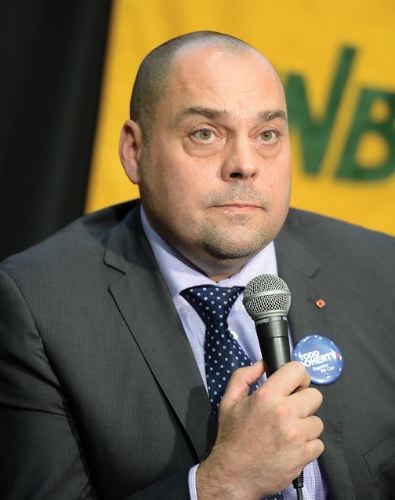Tuesday's Liberal budget provided only piecemeal support for individuals living with post-traumatic stress disorder, said Cariboo-Prince George MP Todd Doherty.
Doherty has been a public advocate for improved health services for first responders, military veterans and individuals living with PTSD. His private member's bill, C-211, which calls for a national framework to address the illness, passed third reading in the House of Commons last June. The bill has not yet reached the floor of the Senate.
Doherty noted that the budget included some improvements in funding for PTSD services and programming for veterans, but said it was far from an adequate response.
"I applaud them for pledging more money for this in terms of our public safety officers and our RCMP, but it's a piecemeal system," Doherty said.
"We need to make sure we are building a cohesive framework and a consistent framework."
Suicides from first responders dealing with PTSD have been rising in Canada. Some have estimated that there were 52 suicides of first responders in 2017. A recent study found that one in 10 paramedics have had suicidal thoughts.
Tuesday's budget included a commitment of an additional $51.4 million in PTSD programming over the next five years, focused largely upon RCMP and public safety officers. The new funding included a commitment of $20 million for research into PTSD among public safety officers, as well as an additional $10 million to establish a cognitive behavioural therapy pilot project for PTSD care and treatment. Further to this, $21.4 million was allocated to the RCMP to help improve mental health programming available to officers.
The budget also included $3.6 billion in additional support for military veterans suffering service-related disabilities that prevent them from working. It is not clear whether veterans suffering from PTSD or mental health conditions would be eligible for these pension or income replacement programs.
No additional funding was included in the budget document for first responders or corrections officers dealing with PTSD.
"It's great that they are putting money towards post-traumatic stress disorder but they're not - again - they're not looking at this whole issue that goes beyond our public safety officers. It expands to our veterans, and our military, that are broken. And we're not fixing them," Doherty said.
"Those are the things that are frustrating for me."
Doherty was encouraged by one item in the budget: a 15 per cent tax credit to help cover the costs of service dogs trained to help individuals with PTSD.
"It's pretty overwhelming to see that calming effect that animals can have on that person. If we're making it easier for those that are in need of those services and that program, I think that's a good thing."
Overall, the budget will put the federal government in a $12.3 billion deficit by 2022. Doherty said the budget failed to provide an adequate plan to return to a balanced budget for the Federal government.
"This is really just a political document, that isn't really a fiscal document," he said.
"There's nothing in here that creates a competitive environment for Canada and Canadian business to compete on the global market."


